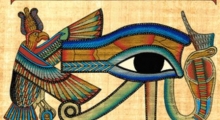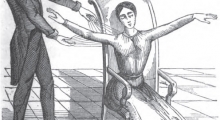
Our communication is much more than the words we use.
Many have seen our videos about fascination. This is the power of non verbal communication in action.
In our school we have developed new and improved ways to do hypnosis, hypnotherapy, coaching and other modern techniques of the mind unleashing the power of some keys of the non verbal communication.
Mesmerism and Hypnosis can be truly understood only if we understand non verbal communication.
What is non verbal communication
Communication is much more than the meaning of words and the literal information of the messages conveyed. It’s important to know that It also includes implicit messages, whether intentional or not, which are expressed through non-verbal behaviors. The types of interpersonal communication that are not expressed verbally are called non-verbal communications. Non-verbal communication includes facial expressions, eye contact, the tone of the voice, gestures displayed through body language ,posture, and even the physical distance between the communicators.
The benefits of knowing the non verbal
If a therapist knows the secrets of non verbal communication he can get results much faster. An exemple was our master Di Pisa, who solved problems of back pain in a few seconds and who developed a specific methodology. He was a keen observer and non verbal communication is behind his powerful results. But it’s important to note that non verbal communication is useful in each area of life.
These non-verbal signals can give us many additional information and meanings over and above verbal communication, this is why understanding nonverbal signs and learning to use this knowledge effectively ,can help us in a many areas in our lives. Non-verbal communication can be very useful in personal matters and in business. Some of the advantages are: Reinforcement of what is said in words, understanding more about people emotional state, more effective communication, strengthening personal and professional relationships, conducting interest and trust when speaking to other people, being more convincing and infuensional. It is a psychological fact that when we communicate, non-verbal meanings can be as important, or in some cases even more important, than what we say. Non-verbal communication can have a great impact on the listener and the proper understanding of the communication. It is also more related with the language of the unconscious which consist much more information widsdom and knowledge than the conscious use of language.
Learn the power of a whole new language
Non verbal communication is as a whole new language that can be learned, and if the meaning of eye movements, and gestures are took into consideration, noticed and better known, the real feelings and intentions of a person would be much better understood. ..
“60% of all human communication is nonverbal body language; 30% is your tone, so that means 90% of what you’re saying is not coming out of your mouth.”
… How it is that non verbal communication is so important, necessary and an efficient skill that we have to acquire to be better parents, employees, leaders, lecturers, businessmen and etc. Perhaps because this form of communication shares so much more than simply words being said. At the very first contact with someone , the way he speaks(slow, loud…), breath, eyes movements, how he sits, more on your left side or right side, words, language… Everything in this gives keys to understand person better and deeply, and to communicate with him in a more effective mannar. A good communicator needs to notice the details in person’s behavior, the direction of eyes movement and his non verbal channels of communication because the verbal ones are much more censured by the conscious mind. Knowledge of non verbal communication and how to use it is the key used to create the first step of healing and change.
A bit of our vocabulary ...
To learn a skill you must learn its vocabulary. Let's begin with the simplest words...
There are many different types of non-verbal communication. They include: Body Movements (Kinesics), for example, hand gestures or nodding or shaking the head; Posture, or how you stand or sit, whether your arms are crossed, and so on; Eye Contact, where the amount of eye contact often determines the level of trust and trustworthiness; Para-language, or aspects of the voice apart from speech, such as pitch, tone, and speed of speaking; Closeness or Personal Space (Polemics), which determines the level of intimacy; Facial Expressions, including smiling, frowning and even blinking; and Physiological Changes, for example, sweating or blinking more when nervous
And the eyes … that are a whole world in themselves.
How to learn
Begin to put attention to elements of non verbal communication and most important observe YOUR non verbal behaviour. Non-verbal communication is a complex but yet integral part of overall communication skills. However, people are often totally unaware of their non-verbal behavior. A basic awareness of non-verbal communication above what is actually said, can help us improve relashionships with others in everyday life and at work. Knowledge of these signs can be can lead to a greater better understanding, which is, after all, the purpose of communication.
Further …
Come often to our site and look at our articles but also at our videos. In these videos you will se how far can go the power of non verbal communication:
https://www.youtube.com/watch?v=LsPpF7Ud5hQ&t=17s








